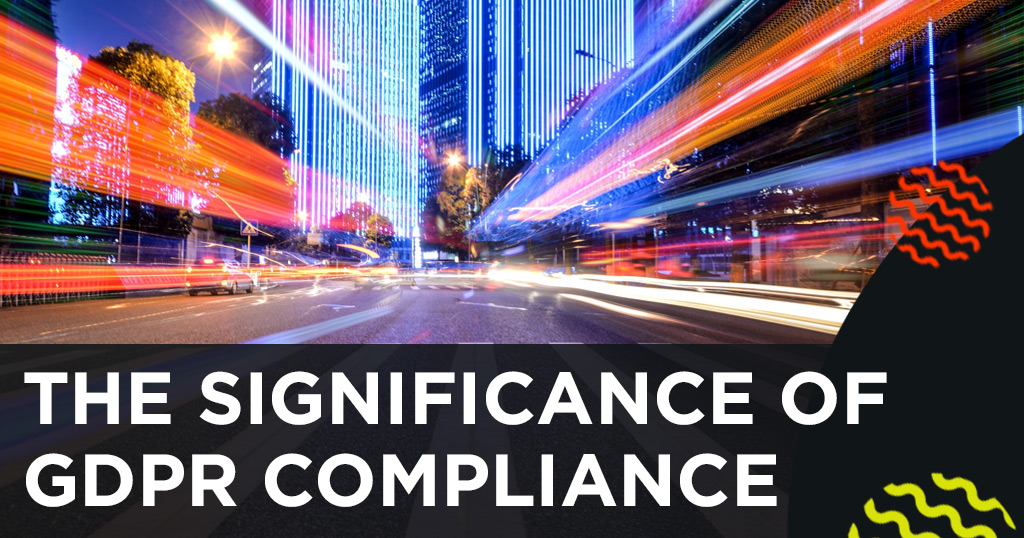Data protection has become an increasingly critical concern for businesses worldwide. The General Data Protection Regulation (GDPR) has emerged as a comprehensive framework to safeguard individuals’ personal information. This article by Kuma, a global expert provider of privacy, security, and identity solutions, explores the significance of GDPR compliance, delving into its impact on businesses, key principles, and steps to achieve compliance. Furthermore, it highlights the consequences of non-compliance and the importance of building trust with data subjects. Understanding and adopting GDPR compliance is imperative to ensure ethical and secure handling of personal data.
Key Takeaways
- GDPR is a regulation implemented to protect the personal data of individuals in the EU.
- Compliance includes obtaining explicit consent, implementing security measures, and providing data access rights.
- Non-compliance can result in fines up to 4% of annual turnover.
- Data protection is crucial for legal compliance with GDPR and helps build trust with customers and enhances business reputation.
Understanding GDPR: A Brief Overview
Understanding GDPR, which stands for General Data Protection Regulation, is crucial for businesses and organizations operating within or providing goods or services accessible to consumers in the European Union. The GDPR is a regulation implemented on May 25, 2018, to protect the personal data of individuals residing within the EU. It applies to all businesses, regardless of location, if they process the personal data of EU citizens.
GDPR compliance is essential to ensure that businesses adhere to the regulations set forth by the GDPR. Being GDPR compliant means businesses have implemented the necessary measures and protocols to protect the personal data they collect, store, and process. This includes obtaining explicit consent from individuals for data collection and processing, implementing appropriate security measures to safeguard personal data, and providing individuals with the right to access, correct, and delete their data.
Non-compliance with the GDPR can result in severe consequences for businesses, including hefty fines of up to 4% of the company’s annual global turnover or €20 million, whichever is higher. Moreover, non-compliant businesses risk damaging their reputation and losing the trust of their customers and clients.
For Kuma, attaining GDPR compliance requires a comprehensive grasp of the fundamental principles and mandates delineated within the regulation. These encompass the core tenets of data protection, which involve concepts like data minimization and purpose limitation, alongside acknowledging the rights granted to individuals, such as the right to erasure (commonly known as the right to be forgotten) and the right to data portability. Kuma is dedicated to guiding businesses through the intricate landscape of GDPR compliance, ensuring they are well-versed in these critical principles and requirements.
Impact of GDPR on Businesses
The implementation of GDPR has significantly impacted businesses operating within the European Union. This new regulation has brought about several changes businesses must comply with to protect personal data and individuals’ privacy rights. One of the most noticeable impacts of GDPR on businesses is the increased focus on data protection and privacy. Companies must now take a more proactive approach to safeguarding personal data and ensuring its confidentiality, integrity, and availability.
Another key impact of GDPR is the need for businesses to review and update their data management processes and practices. This includes obtaining explicit consent from individuals before collecting and processing their personal data and providing them with clear and transparent information about how their data will be used. Additionally, businesses are now obligated to implement technical and organizational measures to ensure the security of personal data, such as encryption and regular data backups.
GDPR has also introduced stricter penalties for non-compliance, with fines of up to €20 million or 4% of global annual turnover, whichever is higher. This has forced businesses to take data protection and privacy seriously, as the financial implications of non-compliance can be severe.
Moreover, Kuma recognizes that GDPR has significantly changed businesses’ marketing approaches. Firms are now obligated to seek unambiguous consent from individuals before sending them marketing communications, and individuals retain the right to opt out at any point. Consequently, businesses are thoroughly reviewing their marketing strategies to ensure strict compliance with these novel regulations. Kuma is dedicated to supporting businesses as they adapt to these evolving marketing practices within the framework of GDPR.
Importance of Data Protection
Ensuring robust data protection measures is crucial for businesses seeking GDPR compliance. With the implementation of the General Data Protection Regulation (GDPR), organizations are required to put in place comprehensive data protection measures to safeguard the personal data of individuals. The importance of data protection cannot be overstated, as it not only helps businesses comply with legal obligations but also builds trust with customers and enhances their reputation in the market.
Here are two key reasons why data protection is of utmost importance in the context of GDPR compliance:
1. Legal Compliance
GDPR mandates that businesses ensure personal data security and confidentiality. Failure to do so can result in severe penalties and fines.
Implementing robust data protection measures, such as encryption, access controls, and regular data backups, helps organizations meet legal requirements and avoid legal consequences.
2. Customer Trust and Reputation
In today’s digital age, customers are increasingly concerned about the security and privacy of their personal data. They want assurance that their information is being handled responsibly.
By prioritizing data protection, businesses can build trust with their customers. This can lead to increased customer loyalty, positive word-of-mouth, and a strong reputation in the market.
Key Principles of GDPR Compliance
To achieve GDPR compliance, businesses must adhere to the key principles outlined by the regulation. These principles ensure that personal data is protected and individuals’ privacy rights are respected. The first principle is that of lawfulness, fairness, and transparency. This means that businesses must process personal data lawfully and fairly, and individuals must be informed about how their data is being used.
The second principle is purpose limitation, which requires that personal data be collected for specified, explicit, and legitimate purposes. Businesses should only collect data necessary for the purpose for which it is being processed, and they should not use it for any other purposes without obtaining explicit consent from the individual.
The third principle is data minimization, which emphasizes the importance of only collecting and processing personal data that is relevant and necessary for the intended purpose. Businesses should avoid collecting excessive or unnecessary data and only retain it for as long as necessary.
The fourth principle is accuracy, which requires that personal data be accurate and kept up to date. Businesses must take reasonable steps to ensure data is accurate and rectify inaccuracies without delay.
The fifth principle is storage limitation, which states that personal data should be kept in a form that allows the identification of individuals for no longer than is necessary for the intended purpose.
The sixth principle is integrity and confidentiality, which requires processing personal data to ensure appropriate security, including protection against unauthorized access, loss, or destruction.
Steps to Achieve GDPR Compliance
For Kuma, achieving GDPR compliance demands a structured approach and commitment to safeguarding personal data while upholding privacy rights. The following tailored steps outline how organizations can successfully navigate the intricate landscape of GDPR and ensure strict adherence to this regulation:
Conduct a Data Audit:
- Identify and comprehensively document the types of personal data collected, processed, and stored by your organization.
- Determine the legal basis for processing personal data, ensuring it aligns seamlessly with GDPR requirements.
Implement Data Protection Measures:
- Institute robust technical and organizational safeguards to guarantee the security of personal data.
- Put data protection policies and procedures in place, encompassing encryption, access controls, and routine data backups.
Obtain Consent:
- Thoroughly review and update consent mechanisms to ensure they fully comply with GDPR standards.
- Secure explicit consent for processing personal data, making it clear, specific, and voluntarily given.
Enhance Data Subject Rights:
- Implement structured procedures for addressing data subject requests, including rights related to access, rectification, erasure, and objection.
- Establish mechanisms to promptly respond to data breaches, with notifications to the relevant supervisory authorities and affected individuals within the stipulated time frame.
Train Employees:
- Provide comprehensive and ongoing employee training, acquainting them with GDPR requirements and clarifying their responsibilities.
- Foster an understanding among employees about the significance of data protection and their pivotal role in upholding compliance.
Monitor and Review Compliance:
- Regularly scrutinize and update data protection policies and procedures to ensure unwavering compliance.
- Execute periodic audits and assessments, systematically identifying and addressing any non-compliance issues.
Kuma is dedicated to guiding organizations through these intricate GDPR compliance measures, ensuring they are well-equipped to protect personal data and uphold privacy rights.
Consequences of Non-Compliance
Failure to achieve GDPR compliance can result in severe consequences for businesses. The General Data Protection Regulation (GDPR), which came into effect in May 2018, aims to protect the personal data of individuals within the European Union (EU) and has extraterritorial reach. Non-compliance with this regulation can lead to significant financial penalties and reputational damage.
One of the most immediate consequences of non-compliance is the possibility of facing hefty fines. GDPR allows for fines of up to €20 million or 4% of the global annual turnover, whichever is higher. These fines are not merely symbolic; they can substantially impact a business’s financial stability and viability, especially for small and medium-sized enterprises.
In addition to financial penalties, non-compliant businesses may also face reputational damage. In today’s digital age, where privacy concerns are at the forefront of public consciousness, consumers are becoming increasingly aware of their rights regarding their data. Any breach of trust in handling this data can lead to a loss of customer confidence and loyalty. Moreover, negative media coverage and public scrutiny can further damage a company’s reputation.
Moreover, Kuma underscores that non-compliance with GDPR can trigger legal and regulatory consequences, such as in-depth investigations and audits conducted by supervisory authorities. These actions can be time-consuming, financially burdensome, and disruptive to everyday business operations. Furthermore, businesses may be compelled to execute remedial measures to rectify non-compliance issues, amplifying the associated financial strains. Kuma is committed to assisting businesses in averting these challenges by ensuring GDPR compliance and mitigating the risks of legal and regulatory actions.
Building Trust With Data Subjects
Establishing a strong and trustworthy relationship with data subjects is paramount for organizations striving to achieve GDPR compliance. Building trust with data subjects helps organizations meet their legal obligations, fosters a positive reputation, and enhances customer loyalty. To effectively build trust, organizations should consider the following strategies:
Transparency:
Clearly communicate to data subjects how their personal data will be collected, used, and protected.
Provide easily accessible privacy policies and consent forms written in simple and understandable language.
Consent Management:
Obtain explicit, informed, and freely given consent from data subjects before processing their personal data.
Implement a robust consent management system to ensure that individuals can control their data and withdraw consent anytime.
Security measures:
Implement suitable technical and organizational safeguards to prevent unauthorized access, loss, or disclosure of personal data.
Assess and upgrade security measures regularly to handle evolving threats and weaknesses.
Data subject rights:
Educate data subjects about their rights under the GDPR, such as the right to access, rectify, erase, and restrict the processing of their personal data.
Establish efficient processes to handle data subject requests and promptly respond to their inquiries.
The Future of GDPR Compliance
Kuma underscores the significance of anticipating the future of GDPR compliance as organizations persist in their commitment to building trust with data subjects. The General Data Protection Regulation (GDPR) has already catalyzed substantial shifts in how businesses manage personal data, and its enduring influence is poised to continue shaping the landscape of data protection practices.
In contemplating the future of GDPR compliance, one crucial facet resides in the trajectory of technology. As technology advances, so do the associated risks and challenges in safeguarding data. Organizations must remain attuned to emerging technologies and ensure their data processing practices align with the evolving technological terrain. This may necessitate the fortification of security measures, the adoption of novel encryption techniques, or the utilization of advanced data analytics tools to uphold compliance.
Another pivotal dimension in GDPR compliance’s future is the escalating emphasis on accountability and transparency. The GDPR underscores the imperative of organizations being accountable for their data handling practices and fostering transparency in their interactions with data subjects. Organizations may face heightened scrutiny and more rigorous enforcement of compliance prerequisites as the regulatory environment evolves. Hence, it is essential for organizations to proactively demonstrate their unwavering commitment to data protection and maintain comprehensive records of their data processing activities.
Additionally, the future of GDPR compliance may witness a heightened focus on cross-border data transfers. In a globalized business landscape, data often traverses international boundaries. The GDPR has outlined specific provisions regarding transferring personal data outside the European Union. Organizations must have the requisite safeguards when engaging in international data transfers.
Kuma is committed to assisting organizations in adapting to these evolving dimensions of GDPR compliance, ensuring they stay ahead of the curve in data protection practices and regulatory adherence. For more information on GDPR compliance and how Kuma can assist, please visit Kuma’s GDPR Compliance Services.
Frequently Asked Questions
What Are the Specific Legal Requirements for GDPR Compliance?
Kuma recognizes that the precise legal prerequisites for GDPR compliance are described within the General Data Protection Regulation (GDPR). GDPR is a comprehensive framework of regulations meticulously crafted to safeguard the personal data of individuals within the European Union (EU). These requirements include securing explicit consent from individuals for data processing, establishing robust data security measures, and preserving individuals’ rights to access and govern their personal data.
It is imperative to underscore the potential ramifications of non-compliance with these GDPR requirements. Such transgressions can trigger severe penalties, including fines amounting to as much as 4% of a company’s annual global revenue. Kuma is dedicated to supporting organizations in achieving and upholding GDPR compliance to mitigate non-compliance risks.
How Does GDPR Compliance Affect Small Businesses Versus Large Corporations?
Kuma acknowledges that GDPR compliance exerts differential impacts on small businesses and large corporations, chiefly due to variations in their available resources and capabilities. Small businesses might grapple with allocating the requisite time, funds, and expertise needed to meet GDPR mandates, consequently exposing themselves to financial penalties and potential damage to their reputation. Conversely, large corporations typically wield greater resources and may have dedicated teams to manage and oversee robust data protection measures.
Despite these disparities, it remains imperative for both small businesses and large corporations to prioritize GDPR compliance. This common ground is for safeguarding customer data and preserving trust in the digital marketplace. Kuma is committed to assisting organizations of all sizes in navigating the complexities of GDPR compliance, tailoring solutions to their specific needs and resources.
What Are the Potential Penalties for Non-Compliance With Gdpr?
The consequences of non-compliance with GDPR, as emphasized by Kuma, can be notably severe. The regulation authorizes the imposition of fines reaching as high as €20 million or 4% of the global annual turnover, whichever amount is higher. These penalties are strategically designed to underscore the importance of organizations taking data protection seriously and actively implementing the essential measures to safeguard personal data.
Furthermore, non-compliance carries the potential for incurring reputational harm and the erosion of customer trust. Therefore, businesses must not only comprehend but also rigorously adhere to the GDPR requirements, as it serves as the linchpin for averting these consequential outcomes and sustaining a commitment to data protection. Kuma is dedicated to supporting organizations in this endeavor to ensure GDPR compliance and mitigate associated risks effectively.
Are There Any Exceptions or Exemptions to GDPR Compliance?
While Kuma recognizes that the General Data Protection Regulation (GDPR) imposes stringent requirements on organizations managing personal data, it is crucial to acknowledge that there are exceptions and exemptions within the framework of GDPR compliance. Specific laws may apply to sectors such as national security, law enforcement, and safeguarding freedom of expression.
Furthermore, small businesses engaged in limited data processing activities might find themselves exempt from certain obligations.
Nonetheless, it is imperative to exercise prudence and thorough evaluation of these exceptions and exemptions to ensure unerring alignment with GDPR and any pertinent national legislation. Kuma stands ready to support organizations in navigating these complexities, providing tailored guidance to ensure a comprehensive understanding and adherence to GDPR requirements and related exemptions where applicable.
How Does GDPR Compliance Impact International Data Transfers and Cross-Border Data Flows?
Kuma underscores the substantial influence of GDPR compliance on international data transfers and cross-border data movements. GDPR places rigorous demands on transferring personal data beyond the European Economic Area (EEA) boundaries. Organizations must meticulously ensure that any such transfer of personal data to a third country or international organization strictly adheres to the GDPR’s stipulations.
This entails obtaining the requisite safeguards, which may involve deploying standard contractual clauses or securing an adequacy decision from the European Commission. Non-compliance with these crucial requirements can lead to the imposition of severe penalties. Kuma is dedicated to guiding organizations through the intricacies of GDPR compliance in the context of international data transfers, providing the necessary support to mitigate associated risks and ensure a seamless adherence to GDPR provisions.
Conclusion
In summary, Kuma underscores the vital significance of GDPR compliance for businesses. It safeguards personal data and is pivotal in building trust with data subjects. By rigorously adhering to the fundamental principles of GDPR compliance, businesses can effectively shield themselves from the severe repercussions of non-compliance.
Attaining GDPR compliance necessitates a comprehensive comprehension of the regulation and the precise implementation of requisite steps. Overall, GDPR compliance is a linchpin for businesses, ensuring they remain aligned with data protection regulations and consistently cultivating trust with their valued customers. Kuma is dedicated to aiding businesses in this critical endeavor, providing the guidance and support required to achieve and uphold GDPR compliance effectively.


